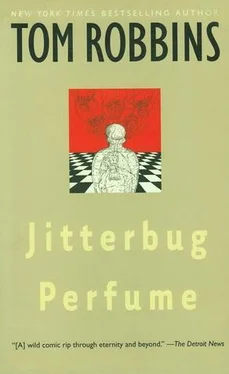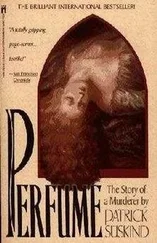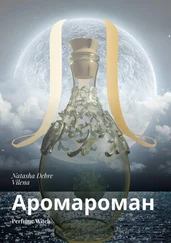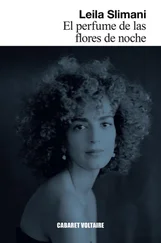Even though, in social terms, the sixties had failed, in evolutionary terms they were a landmark, a milestone, and Wiggs was proud that he had been able to lend a helping hand in ushering in that dizzy period of transcendence and awareness (transcendence of obsolete value systems, awareness of the enormity and richness of inner reality). Still, he was dissatisfied. Anxious. Unhappy. It wasn't prison or the blinding that was bothering him, they were small sacrifices to make for what had been accomplished. It was something else, something that had haunted him since boyhood, undermining his every triumph, dulling his ecstasies, amplifying his agonies, mocking his optimism, spitting in his ice cream.
It was, he came gradually to realize, the specter of death.
If a person leads an “active” life, as Wiggs had, if a person has goals, ideals, a cause to fight for, then that person is distracted, temporarily, from paying a whole lot of attention to the heavy scimitar that hangs by a mouse hair just above his or her head. We, each of us, have a ticket to ride, and if the trip be interesting (if it's dull, we have only ourselves to blame), then we relish the landscape (how quickly it whizzes by!), interact with our fellow travelers, pay frequent visits to the washrooms and concession stands, and hardly ever hold up the ticket to the light where we can read its plainly stated destination: The Abyss.
Yet, ignore it though we might in our daily toss and tussle, the fact of our impending death is always there, just behind the draperies, or, more accurately, inside our sock, like a burr that we can never quite extract. If one has a religious life, one can rationalize one's slide into the abyss; if one has a sense of humor (and a sense of humor, properly developed, is superior to any religion so far devised), one can minimalize it through irony and wit. Ah, but the specter is there, night and day, day in and day out, coloring with its chalk of gray almost everything we do. And a lot of what we do is done, subconsciously, indirectly, to avoid the thought of death, or to make ourselves so unexpendable through our accomplishments that death will hesitate to take us, or, when the scimitar finally falls, to insure that we “live on” in the memory of the lucky ones still kicking.
Wiggs wasn't buying that “live on in memories” number. He had typed himself a small footnote in academic and social history. More important, he had, in his opinion, contributed to the evolution of consciousness in his time. But that sort of immortality was a hollow prize. If what he had accomplished in his “electronic shaman” days in the sixties was destined to have an impact on the future, he wanted to be around to enjoy it.
Not that he hadn't enjoyed himself already. He'd had more fun than an electric eel in a public bath, and, prison or no prison, eye patch or no eye patch, doom or no doom, he was confident the joy wasn't over yet. (As Wiggs related this sentiment to Priscilla, he patted her bare bottom for emphasis.) What's more, he didn't classify himself as a greedy fellow. It was simply that aging was so rapid and death so final that ultimately they robbed life of any meaning.
PHYSICAL PLEASURE
SCIENTIFIC DISCOVERY
ARTISTIC MASTERPIECES
SOCIAL IMPROVEMENT
TECHNOLOGICAL INNOVATIONS
even
LOVING RELATIONSHIPS
or even
SPIRITUAL ECSTASY
Could any or all of these balance the dark weight? The certainty that the most gifted, the most beautiful, the most wise, the most virtuous of us must grow old and die?
“It was then and there, wallowin' on me cot in Concord Prison, that I decided to do somethin' about it,” Wiggs said.
“Because every bloody thing else is secondary to the creepin' chill o' personal extinction.
“Death is the fly in everybody's ointment.
“Death has never been acceptable to humanity, and 'tis less so today.
“To the religious chap, I say, if God loves ye, he wouldn't sicken ye and then murder ye. To the rational fellow, and to the hedonist, as well, I say, death makes a mockery of your logic and your pleasure, alike.
“Folks can never be truly happy, or truly free, or even truly sane as long as they got to be expectin' the vigor to decline and the swatter to fall.
“So, darlin', I pushed aside everything else, cleared me jail cell o' professional journals and scholarly books and, yes, girlie magazines, too, although Alobar was to teach me that was a mistake, and I vowed to dedicate me every erg o' energy to this modest pursuit: the eradication o' death.”
Priscilla looked at him with respectful disbelief. “Well, frankly,” she said, “I've got to classify that under the label of beating the old head against the old brick wall.”
“Indeed?”
“Why, yes, Wiggs. Of course. Everything that's alive was born, and everything that was born has got to die. There's no getting around it. It's the law of the universe.”
Nude though he was, Dr. Dannyboy drew himself up like a bank president. He tapped his patch portentiously, like a master of ceremonies testing a microphone. Then, in a surprisingly soft and even tone, he said:
“The universe does not have laws.
“It has habits.
“And habits can be broken.”
Above Seattle, the many-buttocked sky continued to grind. It taxed the wipers, ragged and lame, that limped, complaining every step of the way, back and forth across Ricki's windshield; first plangent, then lambent, then plangent again, it addressed the tarpaper roof of V'lu's motel, adding an extra dimension to her dreams; it stacked its liquid telegrams against the windowpanes of the Last Laugh Foundation.
Ricki pulled the VW into the driveway of her duplex, killed the engine (a mercy killing), and dashed for her door. She ran not to minimize rain-soak but in order to catch the ring of the telephone should Pris be on the line.
A horned man with the haunches of a goat forced his way into V'lu's dream. The dreamscape was lit by a yellow flame, and there was a suck suck sound as the creature, advancing on her, pulled his hooves in and out of soupy mud. V'lu was awakened by the pounding of her own heart. She was surprised and disturbed to find her pussy quite wet. Realizing that the man in the dream and the man on the bottle were the same, she wisely removed the bottle from under her pillow and buried it beneath the neatly folded clothes in her suitcase. In the darkness, tinted slightly by a seepage of NO VACANCY neon, she walked to the window. Although it was permanently sealed, through it she could smell the rain. Seattle rain smelled different from New Orleans rain, thought V'lu. She was right. New Orleans rain smelled of sulfur and hibiscus, trumpet metal, thunder, and sweat. Seattle rain, the widespread rain of the Great Northwest, smelled of green ice and sumi ink, of geology and silence and minnow breath.
Except to the extent that it enhanced the coziness of their fireside chat, Priscilla and Wiggs were oblivious to the rain. It was simply there in the background, like the feeble fire in the grate. In the foreground were hormones, questions, and wild ideas.
Priscilla was willing to accept Dr. Dannyboy's notion that mortality was the principal source of misery for the human race. She might, moreover, sympathize with his painful conclusion that his previous philosophy had been a sham because it had been friendly to death, accommodating it, making excuses for it, even celebrating our vulnerability to it. But his apparently sincere conviction that he could snatch the mouse hair and remove the scimitar struck her as the kind of high-pitched delusion that can shatter a man's mind like a cut-glass punching bag.
“Wiggs,” she said, “all those strange drugs you took, jungle berries and Amazon sap and stuff, not to mention regular old LSD, do you think they might have, you know, physically, uh, barbecued your brain?”
Читать дальше












